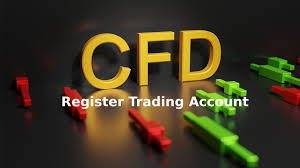Best CFD Trading Regulations A Comprehensive Guide

Understanding the Best CFD Trading Regulations
Contract for Difference (CFD) trading has surged in popularity due to its flexibility, potential for profit, and the ability to trade on margin. However, with greater freedom comes greater responsibility, especially regarding regulations. It’s crucial to understand the best CFD trading regulations that govern this complex financial instrument. This article will delve into the intricacies of CFD regulations around the world and highlight reputable brokers, such as best cfd trading regulations https://bestbrokercfd.com/cfd-brokers/exness/, who adhere to these standards, ensuring a safer trading environment for participants.
What Are CFDs?
Contracts for Difference (CFDs) are financial derivatives that allow traders to speculate on the price movements of assets without owning the underlying asset. When trading CFDs, you can go long (buy) or short (sell), meaning you can profit from both rising and falling markets. While the potential for high returns is appealing, traders must be aware of the risks involved, which is where regulations come into play.
The Importance of Regulation in CFD Trading
Regulation in the financial markets is essential for protecting investors from fraud and ensuring market integrity. In CFD trading, regulation serves several key purposes:
- Investor Protection: Regulations protect traders from malpractice and fraudulent brokers.
- Market Integrity: Effective regulations promote fair and transparent trading practices.
- Risk Management: Regulations often include guidelines that help brokers manage their risk, indirectly protecting traders.
- Educational Initiatives: Many regulatory bodies mandate educational programs, helping traders understand the risks involved in trading CFDs.
Key Regulatory Bodies for CFDs
CFD trading is regulated differently across the globe. Here are some of the major regulatory bodies overseeing CFD brokers:
1. Financial Conduct Authority (FCA) – UK
The Financial Conduct Authority (FCA) is one of the most respected financial regulators worldwide. The FCA imposes strict guidelines on the operation and conduct of brokers in the UK, ensuring transparency and accountability. Key features of FCA regulations include:

- Client funds must be kept in segregated accounts.
- Brokers must provide negative balance protection.
- Strict advertising regulations must be adhered to, preventing misleading claims.
2. Cyprus Securities and Exchange Commission (CySEC)
CySEC is an important regulatory authority for Forex and CFD brokers within the European Union. CySEC provides a favorable environment for brokers while ensuring adequate trader protection. Noteworthy regulations include:
- Client funds must be maintained in segregated accounts.
- Mandatory reporting on financial performance.
- Leverage limits to reduce excessive risk exposure.
3. Australian Securities and Investments Commission (ASIC)
ASIC is known for its strong regulatory framework, which aims to protect investors while promoting a fair and transparent financial market. Key features of ASIC regulations include:
- Strict compliance requirements for financial reporting.
- Segregation of client funds.
- Mandatory licensing for brokers, ensuring they meet financial requirements.
How to Choose a Regulated CFD Broker
Choosing a broker that adheres to regulatory standards is crucial for your trading success. Here are some factors to consider when selecting a CFD broker:
- Regulatory Compliance: Check which regulatory body oversees the broker and whether they comply with its standards.
- Reviews and Reputation: Research broker reviews to gauge their reliability and integrity in the market.
- Trading Platform: Ensure the broker offers a stable and user-friendly trading platform.
- Customer Support: High-quality customer service can be an indicator of a broker’s commitment to its clients.
- Educational Resources: A broker that provides educational materials can be beneficial, especially for new traders.
Common Challenges in CFD Regulation
While regulations in CFD trading aim to protect investors, there are still challenges that traders face:
- Global Differences: Regulatory standards vary significantly across countries, making it challenging for traders who operate internationally.
- Over-Regulation: Some believe that excessive regulation can hamper innovation and make it challenging for smaller brokers to compete.
- Compliance Costs: High compliance costs can lead to increased fees for traders as brokers pass on expenses.
Conclusion
Understanding the best CFD trading regulations is essential for anyone looking to enter the world of CFD trading. Regulations help create a secure environment that protects investors and maintains market integrity. By educating yourself about these regulations and choosing a compliant broker, you can enhance your trading experience and mitigate risks. Always remember that with the potential for profit comes significant risk, and adhering to regulations is one of the best ways to navigate this complex financial landscape.
